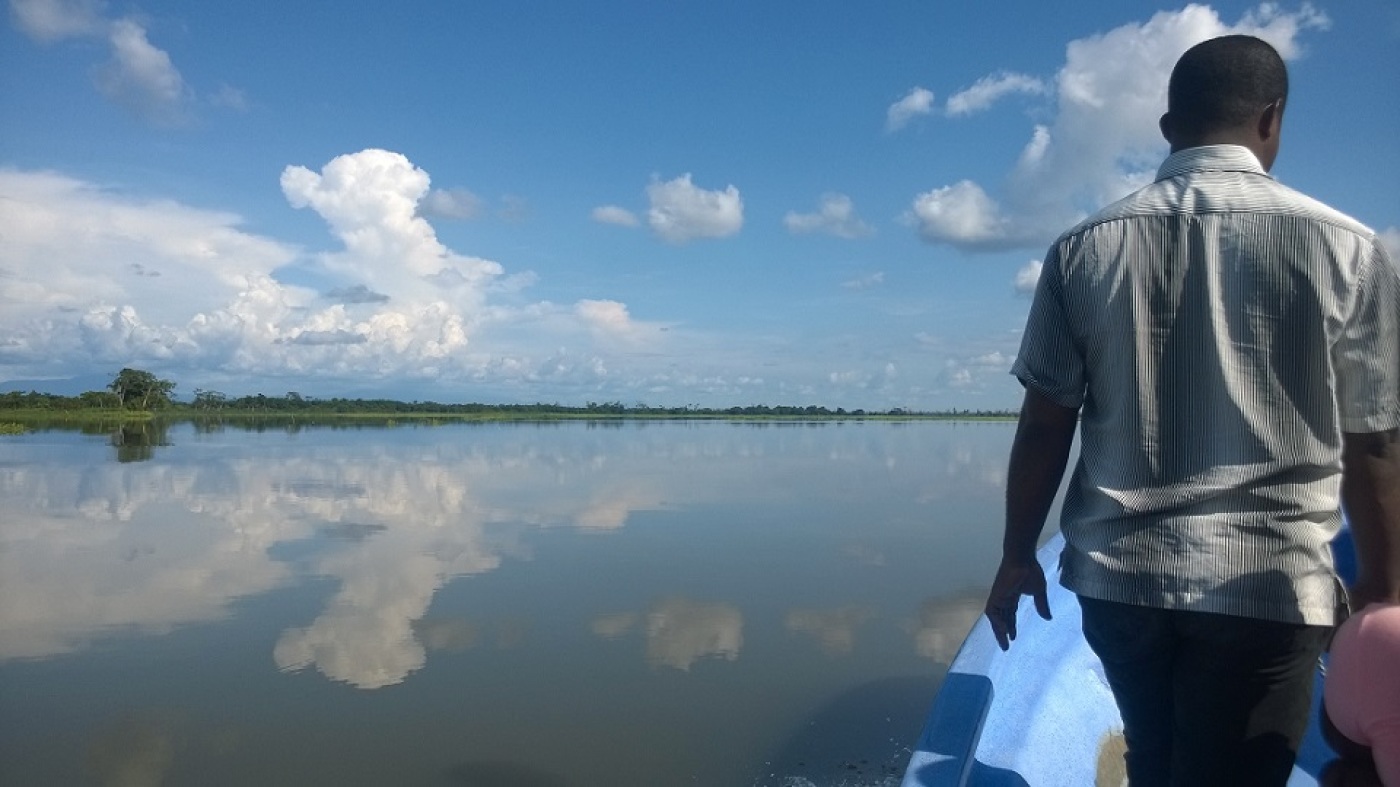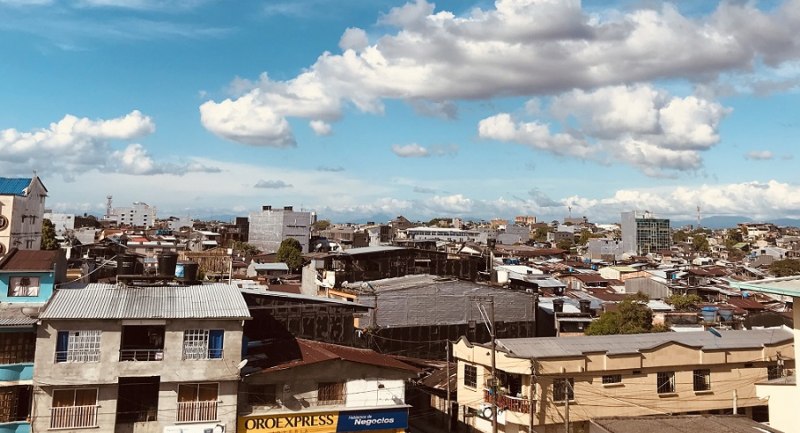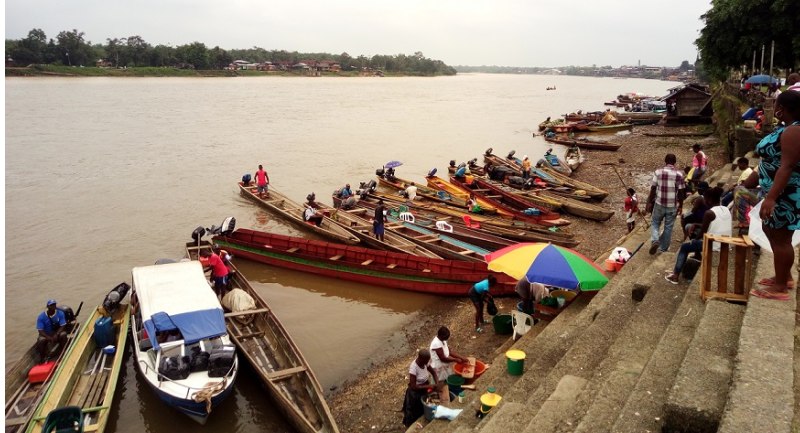River Guardians discuss challenges in Chocó
7 October 2019

This week, Pope Francis has convened a synod in the Vatican to highlight major climate, social, and religious issues faced by those in the Amazon region. The synod aims to discuss important environmental changes surrounding protecting our common home - particularly for indigenous communities. SCIAF have been working with indigenous people in Choco, Colombia, where it has become crucial for locals to protect and make sustainable use of their land and natural resources.
On the eve of the Amazon Synod, SCIAF welcomes 2 river Guardians from the Atrato River in Chocó, Colombia, to Scotland.
Whilst Chocó is not part of the Amazon Biome, it has many similarities. Chocó is a richly biodiverse rainforest ecosystem, dominated by large rivers and thick forest cover. Just like the Amazon, Chocó is culturally diverse too, with a largely indigenous and afro-Colombian population. Like the Amazon, the Chocó region is rich in natural and mineral resources, and communities face an ongoing battle to protect their land and resources from outside interests. In Colombia, this means living within the midst of an ongoing internal armed conflict.

As we will hear from the Guardians, the river Atrato and the Chocó region faces many challenges, including environmental and social devastation (two issues that the Amazon Synod will discuss). The Atrato river is being destroyed by illegal gold mining, and communities are losing their traditional livelihoods as the region’s resources are depleted and degraded. On top of this, the presence of illegal armed actors across the region makes community life precarious. For community leaders, many are targeted for speaking out about the plight of their communities (Colombia remains the world’s most dangerous country to be a Human Rights Defender). As a result, many communities across Chocó have been forced to migrate to the larger cities and towns in search of safety and financial security.
We have worked in Chocó since 2006, identifying it as the poorest region of Colombia, and one of the regions most affect by the conflict. Today, it is the focal point of our Colombia Country Strategy. Through our local partners, we work with local Indigenous, afro-Colombian, and Mestizo rural communities and their organisations, strengthening their capacity to defend, protect, and make sustainable use of their natural resources. We have worked to help communities gain legal rights and full access to their ancestral territories, develop plans for the sustainable use of their resources, and implement livelihood projects within their territories. We also work to ensure local voices are heard loud and clear within Chocó, and at National and International level, by strengthening leadership skills, helping new leaders find their voice, and adding our voice to the demands and campaigns of local organisations and partners.

One such initiative was the River Atrato court ruling from 2016. By working with local communities and organisations, we became aware of the importance of the Atrato River to all the communities within its river basin. This has allowed our partners to bring a ground-breaking case to court in Colombia, where the voice of local communities was crucial to ensuring a positive result. The court ruled in favour of the Atrato River, granting the river the right to be protected, maintained, conserved and restored alongside the biocultural rights of its riverine communities. The Atrato river is the 3rd river in the world to be recognised in this way.
The River Guardians, who are in Scotland this week, are tasked with being the “voice” of the river. They are here to tell us more about the ruling, and the challenges they are facing trying to enforce the implementation of its different components. We are helping the Guardians tell this story by collaborating with Glasgow University and 2 other UK Universities (Nottingham and Portsmouth) who, together with the riverine communities, are developing innovative approaches to monitor the health of the river and highlight the changes it has suffered.